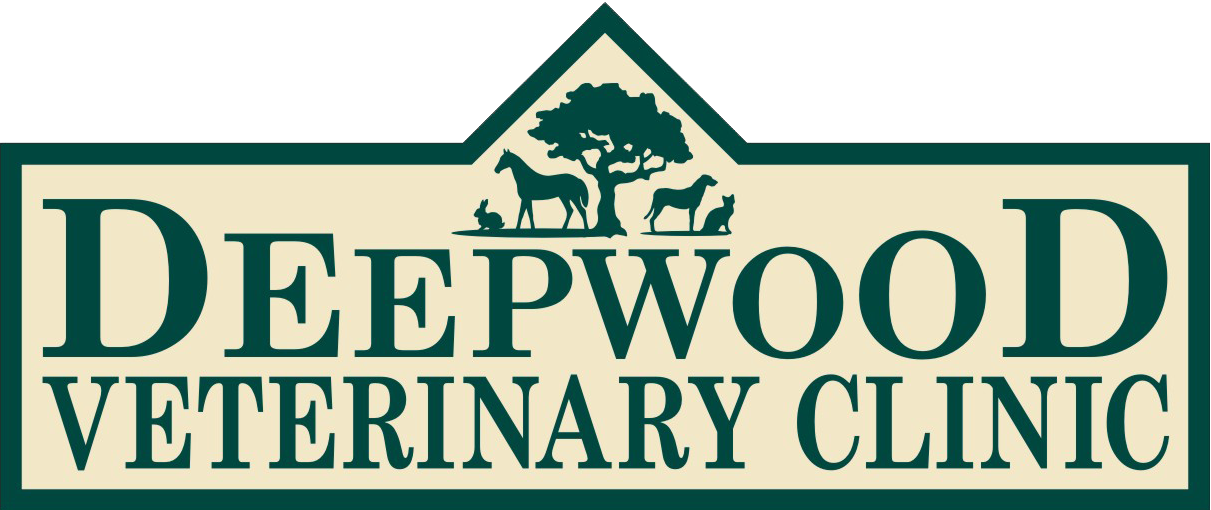
Whether it’s Wellness Services, a Sick Exam, or any of our other services, we’re here for you and your family.
Dog & Cat Services
Wellness Services
Routine wellness checkups, appropriate vaccinations, and consistent parasite prevention are simple and cost-effective ways to help keep your pet healthy. We all know that we should see the doctor on a regular basis even if we are feeling well, and our pets should too! Regular checkups every 6-12 months (depending on your pet’s age and medical condition) are a must for all adult dogs and cats. Puppies and kittens should be seen every 3 weeks or so while they are growing rapidly and completing their initial vaccines.
Why do we want to see your pet so often? It’s not just for the purrs and face licks, we promise! Regular checkups help us (and help you!) to keep your pet happy and healthy. We are looking for early, subtle indicators of disease or discomfort that may go unnoticed at home, because the sooner we can intervene, the better chance we have of treating the condition. We also want to make sure that your pet is up-to-date on all needed vaccines, as well as preventatives for heartworms, GI parasites, and fleas and ticks, so that they are as protected as possible from potentially harmful infections and infestations.
Click any of the buttons below to learn more about our services, as well as additional topics:
Sick Pet Exams
Even with consistent preventative care, sometimes pets injure themselves, or become ill. If this happens to your pet, you can feel comfortable knowing that we will do all we can to help them, and that there are a wide variety of diagnostic and therapeutic options at your disposal.
We offer a number of in-house laboratory services, allowing rapid on-site testing for a wide variety of conditions. In-house digital X-ray and abdominal ultrasound are also available if your pet requires imaging services. If surgery is required, our surgical suite and team are available to handle the majority of soft tissue surgeries, as well as certain orthopedic procedures.
If your pet is in need of hospitalization, we offer both daytime and overnight hospitalization services. If deemed necessary, medications and intravenous fluids can be administered overnight by one of our dedicated technicians, who will check in on your pet and contact a doctor if any concerns or questions arise. For more critical patients in need of dedicated 24-hour care, we offer referral to one of the excellent emergency facilities in our region.
We also offer a special “hospital” area of our boarding facilities dedicated to patients who may be recovering from illness or injury, or who simply require a little extra monitoring and care. This area is separate from our traditional boarding facilities, and is closer to the main hospital and treatment sites, so that we can more closely observe your pet.
If your pet is deemed to be in need of diagnostic or therapeutic options that are unavailable at Deepwood, we will work with you to arrange a referral to one of the fantastic local specialists in our regions. Nearby referrals are available for internal medicine, surgery (soft tissue and orthopedic), cardiology, ophthalmology, neurology, oncology, dermatology, and physical rehabilitation services.
If you have any questions about whether we can help your ill or injured pet, please do not hesitate to call us at: 703-631-9133!
Dental Services
The most common disease affecting dogs and cats is periodontal disease. Periodontal disease is an inflammatory disease that can affect both soft tissues (such as the gums) and hard tissues (such as teeth and surrounding bones) of the mouth. This condition is entirely preventable, yet by age three, it affects the majority of cats and dogs. Additionally, the bacteria and chronic inflammation present in the mouth are known to affect the heart, liver and kidneys.
What Dental Services Does Deepwood Offer?
For pets with mild periodontal disease, and/or for maintenance of oral health in between anesthetic dental procedures, we are now offering non-anesthetic Preventative Dental Cleaning & Assessment procedures, thanks to our partnership with Animal Dental Care. ADC technicians have had extensive dental training above and beyond that of most veterinary technicians. Using their special 7-Step Non-Anesthetic Dental Procedure, an ADC technician will scale, polish, and carefully chart your pet’s mouth, taking note of any and all abnormalities. If they discover a problem that needs to be addressed under anesthesia, you will be informed and we will work with you to promptly address the issue.
For significant periodontal disease, we offer a COHAT, or Complete Oral Health Assessment & Treatment. This procedure is performed under anesthesia. To prepare for this process, your pet must have a full physical exam and pre-anesthetic blood work. Depending upon their age and medical history, additional diagnostic testing may be recommended. A treatment plan estimating the cost of a dental cleaning will be prepared for you, but it is not always possible to accurately determine the degree of periodontal disease without anesthesia.
Most dogs and cats return home the same day as their dental procedure, although if an animal is particularly groggy or it is especially late in the day, we may recommend that they spend the night with us.
After your pet’s dental cleaning, they may go home on pain medication and/or antibiotics. If tooth extractions have been performed, they will have to eat soft food and avoid certain toys for a few weeks. Once they have fully recovered, regular preventative dental care at home and follow-up visits are strongly urged. Without this, an animal’s periodontal disease will quickly return.
What Are the Symptoms of Periodontal Disease?
The most common sign of periodontal disease that cat and dog owners notice is halitosis (bad breath). Other symptoms include visible plaque and tartar buildup, inflamed and/or bleeding gums, dropping food, sensitivity when touched around the mouth, a change in preferences for food texture, or shifting food around in the mouth. However, many severely affected animals show their owners no signs or only very subtle signs at home, and do not seem overtly painful. Without regular checkups and oral evaluations, progressive periodontal disease may go unnoticed.
What Can I Do at Home For My Pet’s Dental Health?
The best at-home preventative option is daily, or at least every-other-day, brushing teeth with pet-specific toothpaste. Special rinses and gels, and in some instances, special diets or chews may also be of benefit, although they have not been shown to be as effective as brushing the teeth. Products certified by the Veterinary Oral Health Council to meet standards of plaque and tartar reduction may be found here, but if you have questions about a particular product or product, ask your veterinarian or veterinary technician. Additional suggestions and tips for at-home oral care are available online from the American Veterinary Dental College for both dogs and cats.
“Deepwood is like family. They are the most caring, professional, and best veterinary establishment I’ve encountered. We have been going to them for over 10 years and have had 7 furry family members cared for by Deepwood. I recommend them to anyone and give them the most stars possible.”
In 2019 Deepwood ranked 44th out of the Top 500 Vet Clinics in the United States.
“I had my Saint Bernard and our pot belly at the clinic last month. They spent the night after getting their yearly shots, baths, grooming, nails, hooves, ears, yearly heart worm shot for my dog girl. Very Thorough. This is a teaching hospital. That means they have some of the very best doctors outside of a university setting. I’m not made of money and I do find prices are competitive. Thank you very much Deepwood Vet.”
Just a Few of our Happy Four-Legged Patients:









































We’re thankful for all our wonderful clients and patients!
“My old girl Phoebe - She’s still with us because of Dr. Roberts and Dr. Pools efforts in keeping her inflammation low and lower her pain / keep her comfortable after what we believe was a stroke and a blood clot episode.”



